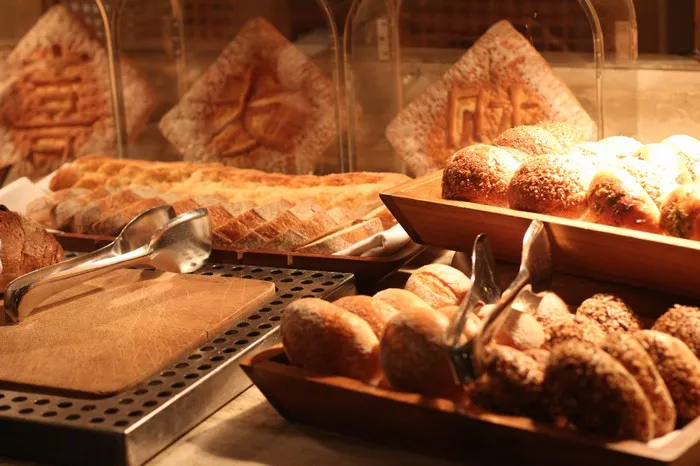Sweet Hut Bakery is a renowned bakery chain specializing in Asian-inspired baked goods and beverages. With its origins rooted in Atlanta, Georgia, Sweet Hut Bakery has rapidly expanded its footprint, captivating customers with its unique fusion of traditional Asian flavors and modern bakery delights. From freshly baked pastries to bubble teas, Sweet Hut Bakery has become a beloved destination for those craving delectable treats with a twist.
Sweet Hut Bakery Franchise Initial Investment
Entering the realm of franchise ownership with Sweet Hut Bakery requires a significant initial investment. The franchise fee typically ranges from $30,000 to $50,000, granting franchisees the rights to operate under the Sweet Hut Bakery brand. Additionally, prospective franchisees must account for startup costs, including leasehold improvements, equipment purchases, and inventory expenses.
Leasehold improvements, such as renovation and customization of the bakery space, can vary widely depending on location and the condition of the premises. On average, these costs may range from $50,000 to $150,000 or more. Equipment purchases, including baking ovens, display cases, and beverage dispensers, can add another $100,000 to $200,000 to the initial investment.
Franchisees should also allocate funds for initial inventory purchases, staffing expenses, and marketing initiatives to launch their Sweet Hut Bakery franchise successfully. Overall, the total initial investment for a Sweet Hut Bakery franchise can range from $300,000 to $500,000 or more, depending on various factors such as location, size of the bakery, and local market conditions.
Sweet Hut Bakery Franchise Ongoing Expenses
Running a Sweet Hut Bakery franchise entails ongoing expenses that must be carefully managed to ensure profitability and sustainability. These expenses include but are not limited to:
1. Royalty Fees: Franchisees are typically required to pay ongoing royalty fees to the franchisor, typically calculated as a percentage of gross sales. This fee, often ranging from 4% to 6% of sales, contributes to the ongoing support and resources provided by Sweet Hut Bakery corporate.
2. Marketing Fees: Franchisees may also be obligated to contribute to a marketing fund, enabling collective advertising efforts to enhance brand awareness and drive customer traffic. Marketing fees typically range from 1% to 3% of gross sales.
3. Rent and Utilities: Monthly rent for the bakery space, along with utilities such as electricity, water, and gas, constitute significant ongoing expenses. Rent costs vary based on location and square footage but can range from $5,000 to $15,000 or more per month, depending on the market.
4. Labor Costs: Employee wages, payroll taxes, and benefits represent a substantial portion of ongoing expenses. Proper staffing is crucial for maintaining service quality and meeting customer demand, but it can also significantly impact the bottom line. Labor costs typically range from 25% to 35% of gross sales.
5. Inventory and Supplies: Regular replenishment of ingredients, packaging materials, and other supplies is essential to sustain bakery operations. Inventory costs can fluctuate based on seasonal demand and product availability but generally constitute around 30% to 40% of gross sales.
6. Insurance and Licenses: Franchisees must maintain various insurance policies, including general liability, property, and workers’ compensation insurance, to protect against unforeseen risks and liabilities. Additionally, licensing fees and permits may be required to comply with local regulations.
7. Maintenance and Repairs: Routine maintenance and occasional repairs of equipment, fixtures, and facilities are necessary to ensure smooth operations and a pleasant customer experience. Franchisees should budget accordingly for these ongoing expenses.
Sweet Hut Bakery Franchise Financial Projections and ROI
Before embarking on a Sweet Hut Bakery franchise journey, prospective franchisees must conduct thorough financial projections to assess the potential return on investment (ROI). Factors such as location, market demographics, competition, and operational efficiency play a crucial role in determining the financial performance of a franchise.
Financial projections should encompass various key performance indicators (KPIs) such as sales forecasts, gross margin analysis, operating expenses, and net profit projections. Utilizing historical data from existing Sweet Hut Bakery locations and industry benchmarks can provide valuable insights into revenue potential and expense management.
A well-constructed financial model should consider both short-term and long-term projections, accounting for initial startup costs and ongoing expenses over a multi-year period. Sensitivity analysis may also be conducted to evaluate the impact of different scenarios, such as changes in sales volume or cost structures, on profitability.
Ultimately, the ROI of a Sweet Hut Bakery franchise depends on the ability of the franchisee to effectively execute the business model, deliver exceptional customer experiences, and adapt to evolving market dynamics. While franchising offers the advantage of established brand recognition and proven systems, success requires dedication, hard work, and prudent financial management.
Conclusion
In conclusion, owning a Sweet Hut Bakery franchise presents a promising opportunity for entrepreneurs passionate about the bakery industry and Asian culinary delights. By carefully analyzing the initial investment, ongoing expenses, and financial projections, prospective franchisees can make informed decisions and embark on a rewarding entrepreneurial journey with Sweet Hut Bakery.

